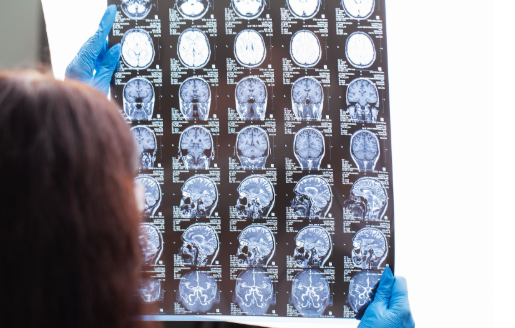
Traumatic brain injuries (TBIs) are often sudden, life-altering events that can have lasting impacts on physical, cognitive, and emotional health. Whether caused by a fall, car accident, sports injury, or other trauma, understanding the different types of brain injuries can help guide healing and emphasize the importance of holistic, long-term care.
A Holistic Approach to Traumatic Brain Injury: Supporting Recovery and Long-Term Health
At Journey of Health, we believe in addressing not just the injury itself but the whole person, supporting the body’s natural healing processes while considering the emotional and neurological aftermath. Our naturopathic doctor and team integrate homeopathy, nutrition, and anti-inflammatory therapies to help patients recover. Let’s take a closer look at the types of traumatic brain injuries and how they can affect long-term health.
1. Concussion (Mild TBI)
A concussion is the most common type of TBI and often results from a blow to the head or a violent shaking. Symptoms can include headache, dizziness, fatigue, nausea, memory difficulties, and mood changes. While labeled “mild,” concussions can lead to post-concussion syndrome, a condition where symptoms last for weeks or even months. Repeated concussions can lead to chronic neurological issues. Anti-inflammatory nutrition, omega-3 supplementation, and gentle craniosacral therapy can aid brain recovery. Mindful and cognitive rest is also essential.
2. Contusion (Brain Bruise)
A contusion is a bruise on the brain itself, usually resulting from direct impact. It may cause swelling, blood clots, loss of consciousness, and difficulty with coordination. Depending on severity, contusions can require surgical intervention. Long-term effects may include difficulty with focus, movement, or memory. Natural therapies such as turmeric, homeopathy (like Arnica for trauma), and acupuncture may support inflammation reduction and pain management post-recovery. Our naturopathic doctor can guide you in these natural healing strategies, incorporating nutrition and homeopathy to support a balanced recovery.
3. Coup-Contrecoup Injury
This injury occurs when the brain strikes both sides of the skull, first at the impact point (coup), then on the opposite side (contrecoup). It can result in widespread brain dysfunction. Symptoms often resemble those of more severe concussions or contusions, but can be more intense due to the dual injury site. In addition to physical therapies, consider neurofeedback and functional neurology support to rebuild healthy brain patterns. Emotional therapy, adaptogenic herbs, and anti-inflammatory nutritional interventions, including omega-3s, may also help regulate stress responses and reduce inflammation.
4. Diffuse Axonal Injury (DAI)
DAI involves tearing of the brain’s long connecting fibers (axons) due to severe rotation or shaking. This injury is common in high-speed accidents and can lead to unconsciousness or coma, severe cognitive impairment, and long-term disability. Because damage is widespread, DAI is considered one of the more severe forms of traumatic brain injury. DAI requires extensive medical care, but a naturopathic approach can complement recovery with targeted nutrition, mitochondrial support (such as CoQ10), homeopathic care, and integrative neuro-rehabilitation guided by a naturopathic doctor.
5. Penetrating Brain Injury
When an object fractures the skull and enters brain tissue, it’s classified as a penetrating injury. These are typically surgical emergencies and may result in permanent brain damage, paralysis, seizures, or personality changes. Recovery is complex and ongoing. Emotional wellness, trauma-informed care, and long-term support for both patient and family are critical. Supportive therapies, including homeopathy and nutrition tailored to anti-inflammatory needs, can help address underlying inflammation and promote healing.
Journey Toward Healing Traumatic Brain Injuries
No matter the type, TBIs can disrupt brain function and lead to chronic issues like anxiety, depression, hormonal imbalances, and cognitive decline. At Journey of Health, we address these through individualized treatment and naturopathic care. Our naturopathic doctor utilizes integrative healing to support neuroplasticity, reduce inflammation, and empower patients with tools for recovery.If you or a loved one is navigating the aftermath of a brain injury, we invite you to connect with our compassionate team at Journey of Health. Together, we’ll develop a path forward that honors your unique healing process. Contact us today to get started.



Speak Your Mind